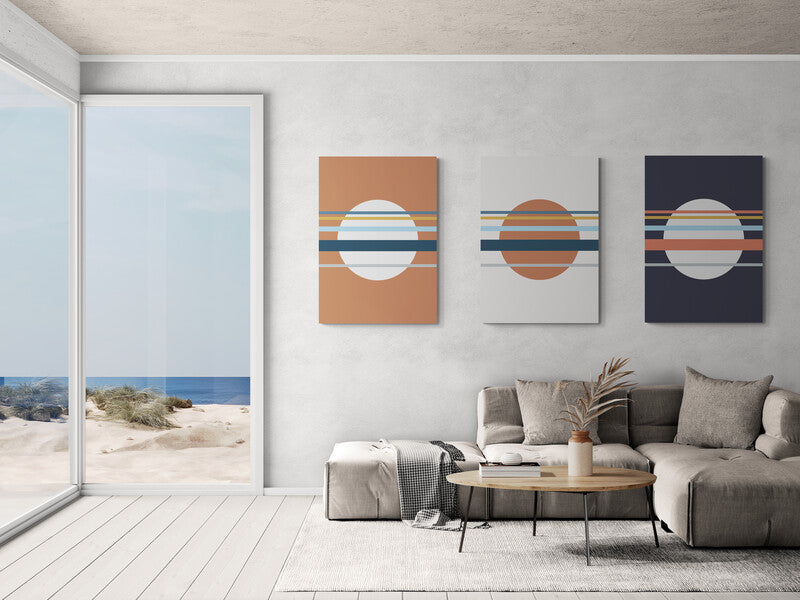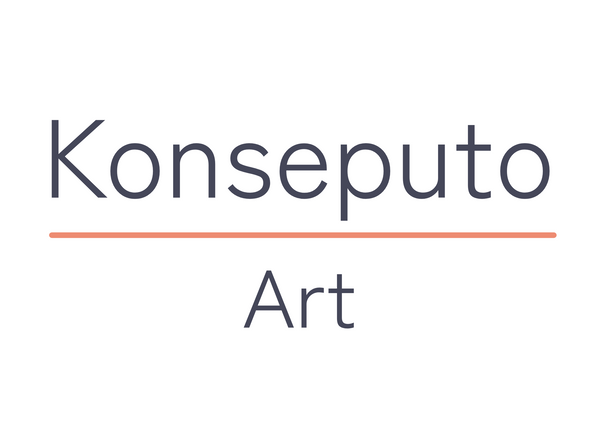
Embracing Wabi-Sabi: The Beauty of Imperfection in Japanese Minimalist Art
Share
In a world that often celebrates perfection, endless choice, and constant upgrades, the Japanese philosophy of wabi-sabi offers a refreshing alternative — finding beauty in imperfection, impermanence, and simplicity.
At Konseputo Art, wabi-sabi isn’t just a design choice. It’s a guiding principle that shapes how we create art and how our customers experience it in their homes.
What Is Wabi-Sabi?
Wabi-sabi is a traditional Japanese worldview centred around the acceptance of transience and imperfection. It’s the appreciation of the marks left by time, the asymmetry of nature, and the quiet simplicity that comes with embracing things as they are.
In design, this translates to:
- Natural textures
- Weathered surfaces
- Uneven shapes
- Muted, earthy colours
- A focus on space, silence, and simplicity
How Wabi-Sabi Influences Minimalist Wall Art
While some minimalist art leans towards sharp lines and starkness, Japanese minimalist art influenced by wabi-sabi feels softer and more organic.
In our prints, you’ll notice:
Textured gradients that mimic mist, shadows, or aged paper
Unbalanced compositions that create natural flow instead of perfect symmetry
Subtle imperfection in shapes and forms, allowing the eye to rest naturally
This is especially reflected in our Zen-inspired wall art and pieces from the Tabi Collection, where simplicity doesn’t mean emptiness — it means presence.
Why Wabi-Sabi Matters in Modern Life
Decorating with wabi-sabi art isn’t just an aesthetic choice. It’s an intentional move towards:
Slowing down: Creating visual spaces that feel calm and uncluttered
Letting go of perfection: A reminder that life, like art, is always in flux
Finding calm in imperfection: Embracing materials, objects, and spaces that feel real, not manufactured
How to Decorate with Wabi-Sabi Principles
Less but meaningful: Choose a few pieces of minimalist wall art that speak to you, rather than filling every wall.
Natural materials: Combine artwork with wood, linen, stone, or ceramic elements in your space.
Celebrate space: Don’t feel the need to fill every empty area — negative space is part of the design.
Soft colour palettes: Stick to neutral, earthy, and muted tones.
Konseputo Art: Wabi-Sabi in Every Print
Our designs are created to bring quiet presence to your space — whether it’s the soft geometry of a Tokyo skyline or the textured layers of a mountain at dusk. Each piece is designed to work in Japandi decor, minimalist homes, or anyone looking for art that feels calm, grounded, and timeless.



